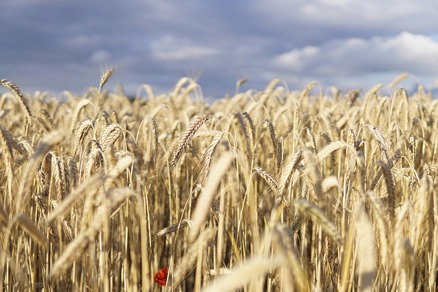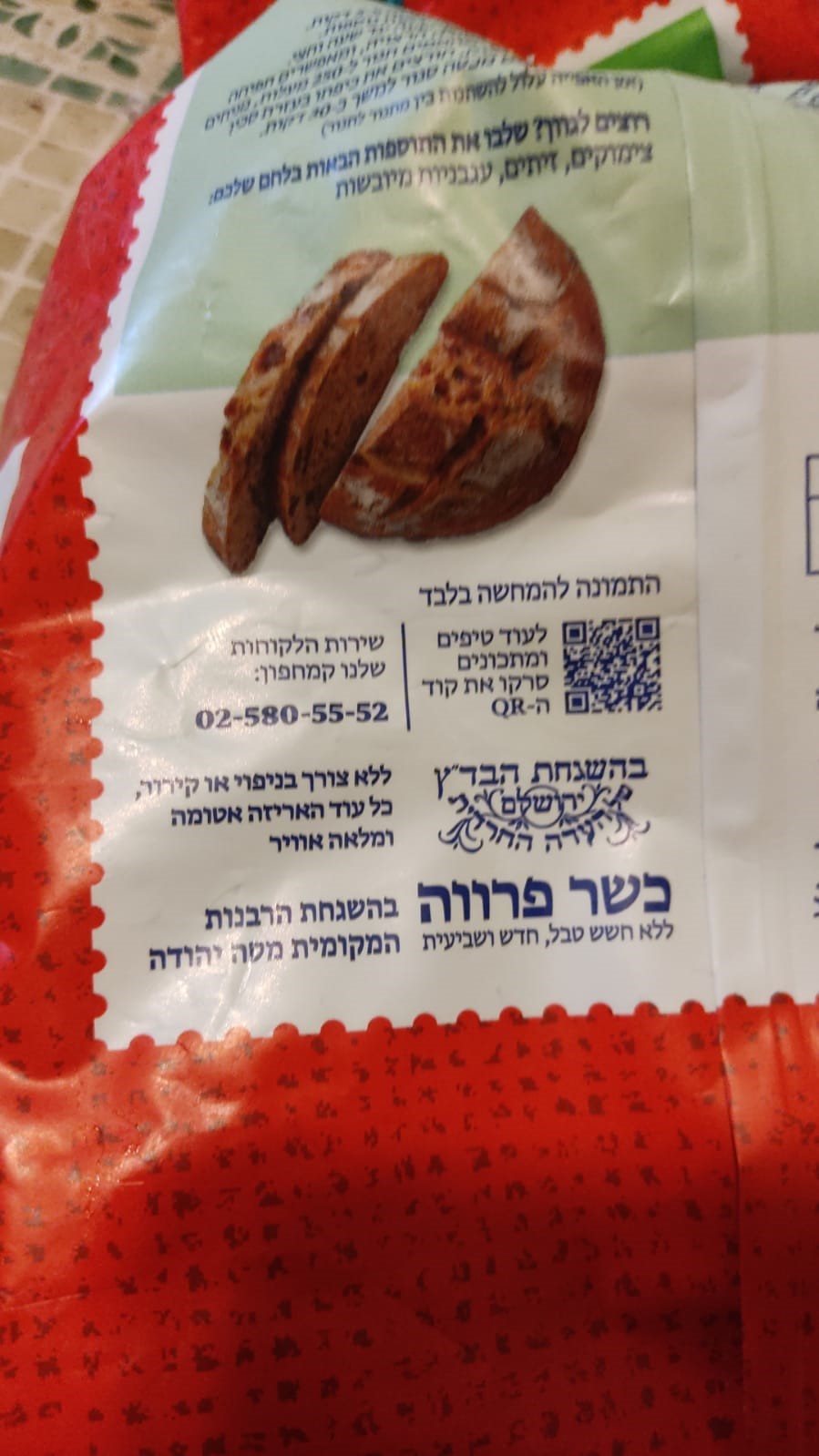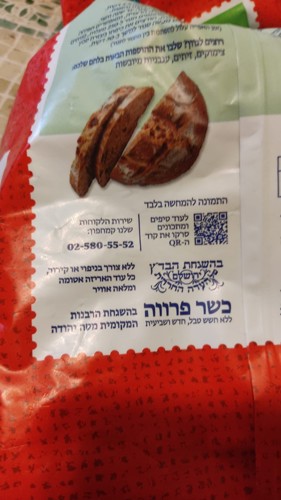The Omer Offering and the Chadash Prohibition in Israel and Abroad

On the chadash prohibition in Israel and abroad, the positions of the chief rabbinate and kashrut agencies. Plus: why do we rarely see "no fear of chadash" on Israeli bakeries and local goods, while it is often advertised abroad?
Sefirat ha'omer that we are in the middle of counting is an excellent opportunity to learn about a land-dependent mitzvah that we actually don't encounter in Israel often: the mitzvah of chadash.
Around 15 years ago, when I was a sixth-year student in the Yerucham hesder yeshiva, I flew to my cousin's bar mitzvah in Pittsburg, Pennsylvania. During the visit, I visited my grandfather in Brooklyn. There, kosher restaurants advertised kemach yashan. I remember calling my father, saying: "Dad, I recall that there's a mitzvah having to do with new and old grain, somehow connected to the omer sacrifice and sefirat ha'omer. But isn't it supposed to be a mitzvah hateluya ba'aretz? How is it that I've never heard about it here in Israel, only in America? Isn't supposed to be the other way around?
The omer offering and sefirat haomer
On 16 Nissan, the omer offering was brought at the Beit Hamikdash (Vayirka 23: 9-14). The Torah writes that from this time, we count 49 days, which is the famous sefirat ha'omer that culminates on erev Shavuot (Vayirka 23:15): וּסְפַרְתֶּם לָכֶם מִמָּחֳרַת הַשַּׁבָּת מִיּוֹם הֲבִיאֲכֶם אֶת עֹמֶר הַתְּנוּפָה שֶׁבַע שַׁבָּתוֹת תְּמִימֹת תִּהְיֶינָה
The Torah states explicitly that the time the omer offering is offered is the time that permits eating grains (Vayikra 23:14): "וְלֶחֶם וְקָלִי וְכַרְמֶל לֹא תֹאכְלוּ עַד עֶצֶם הַיּוֹם הַזֶּה עַד הֲבִיאֲכֶם אֶת קָרְבַּן אֱלֹקיכֶם חֻקַּת עוֹלָם לְדֹרֹתֵיכֶם בְּכֹל מֹשְׁבֹתֵיכֶם." "Until that very day, until you have brought the offering of your God, you shall eat no bread or parched grain or fresh ears; it is a law for all time throughout the ages in all your settlements."
The five grains that grow prior to mid-Nissan are forbidden for consumption until after 16 Nissan, the day the omer offering was brought; only from 17 Nissan can we partake in the new produce. This prohibition is called chadash (new). Grains from the previous year are permissible for consumption and are termed yashan (old).
All produce that takes root before 16 Nissan is permissible after that date. Since the process of taking root takes three days, grains should be sown by 12 Nissan (Rambam Ma'achalot Assurot 10:4). What about outside of Israel?
Does the chadash prohibition apply only in the Land of Israel?
An anonymous mishnah in tractate Orlah (3:9) states that chadash is forbidden everywhere, implying outside the Land of Israel as well. A mishnah in tractate Kiddushim (1:5) attributes this opinion to Rabbi Eliezer, who disagrees with the tannah kamah. The Gemara (Kiddushin 36) notes that Rabbi Yishmael is the one who disagrees with Rabbi Eliezer, the former maintaining that chadash applies in the Land of Israel only.
The Rishonim disagree as to whose opinion we follow regarding chadash outside the Land of Israel.
Rambam, Shulchan Aruch (293:2), and many other Rishonim rule that chadash outside of Israel is a biblical prohibition. The Or Zaruah maintains that it is rabbinic, so one may be lenient in cases of doubt. The Remah writes that in practice we are lenient due to sefek sefeikah, but if it is certain that the produce is chadash one should be stringent (unless there is no alternative; in which case people should not be informed so that they will not deliberately transgress the prohibition). Sefer Haterumah rules that chadash prohibition does not apply whatsoever in countries far from the Land of Israel. The Bach permits chadash outside the Land of Israel when grown by non-Jews, and his son-in-law, the Taz, permits it when no alternatives are available. Chasidim in general are lenient about chadash outside of Israel, citing a story about the Baal Shem Tov who specifically requested beer brewed from chadash grain to demonstrate that he follows the Bach's opinion.
Current situation in Israel
In the introduction, I recounted how I saw Brooklyn bakeries advertising kemach yashan, and asked why we don't see such signs in Israel.
We do see kashrut certificates for baked goods and bakeries in Israel featuring "challah was taken," "no concern of tevel" and "terumot and ma'aserot were separated," but not "kemach yashan" or "no concern of chadash." Why not? Last week we discussed the posekim who maintain that it is a rabbinic prohibition outside of Israel and are therefore lenient. However, posekim agree that chadash is biblically prohibited in the Land of Israel.
Situation in the field
Most grains in Israel are sown in the winter and harvested between Iyar and Sivan, so chadash does not present a practical issue for locally-grown grains. Even if grain is harvested early before mid-Nissan, Israel's Chief Rabbinate supervise the granaries and ensures that no chadash grain or flour reaches the marketplace. All grains imported to granaries are under the supervision of the Chief Rabbinate, which sees to it that either no chadash grain is imported or that it is stored until it becomes yashan. All imports certified by Israel's Chief Rabbinate do not contain chadash grain.
That is, the reason we rarely see "no concern of chadash" on kashrut certification is because, Baruch Hashem, all products certified by Israel's Chief Rabbinate are chadash-free. This is thanks to the fact that the Chief Rabbinate is a dominant and influential player in the local kashrut scene. Most Mehadrin and Badatz kashrut agencies in Israel rely in many ways on the Rabbinate's basic kashrut certification, only adding extra stringencies.
Note that more than 90% of grain consumption in Israel is from imports, not from locally grown grain.
Most kashrut organizations outside Israel today permit chadash, including the OU. Nevertheless, Israel's Chief Rabbinate is stringent about chadash from outside of Israel. This means that any product imported from abroad certified by Israel's Chief Rabbinate was checked and does not contain chadash grain. This includes grains, flour, drinks (such as beer and whisky) and baked goods (cookies, crackers, etc.).



Lelo chashah chadash. The grain was milled in Israel, but was imported (Photo: Kayla Krauss).
Note that there are imports certified by foreign kashrut agencies only, which are not stamped with certification by Israel's Chief Rabbinate. These products may contain chadash grain and are sold only in stores that do not have a kashrut certification and are especially prevalent in health food snacks (especially containing oat meal). Also note that some kashrut agencies do print lelo chashash chadash on the package (see picture above), but this is not a requirement of the Chief Rabbinate.
Is it legal to import products with foreign kashrut labels?
Whoever wants to sell imported food products in Israel at stores with kashrut certificates must receive the approval of the Chief Rabbinate's import department. However, there are many shops in Israel (kiosks, Tiv Ta'am, AM:PM, etc.) that don't have kashrut certification and sell food products, most in sealed packages. Such places may sell imported goods with foreign kashrut certification only, without the Chief Rabbinate's approval.
Most importers are interested in receiving the Chief Rabbinate's certification so they can enter the local kosher marketplace, but some do not. At times it is a monetary consideration; some have products specifically sold in shops without kashrut certification; certain products might not meet the Chief Rabbinate's standards – for instance, containing chalav nochri or chadash. Often there are parallel imports of the same product: the main importer has a kashrut certification from a foreign kashrut agency and certification by the Chief Rabbinate's import department, but the parallel importer only has the certification of the foreign kashrut agency, not of the Chief Rabbinate. It is also possible that the imported has no kashrut certification whatsoever.
In conclusion, it is legal to import products without kashrut certification. The only product that it is illegal to import without kashrut certification is meat.
